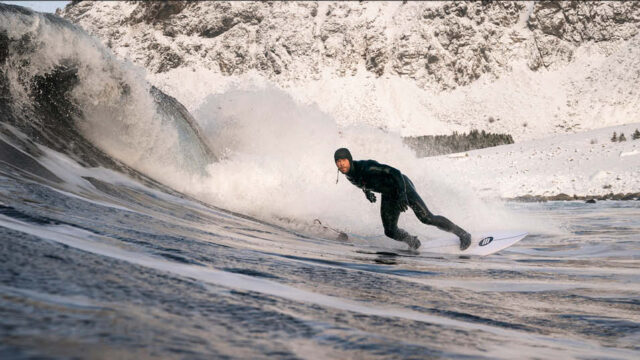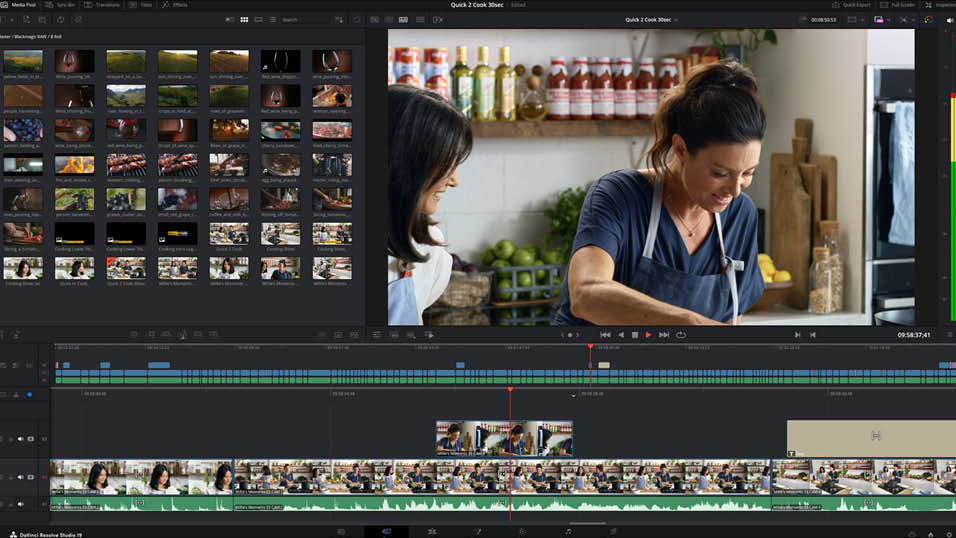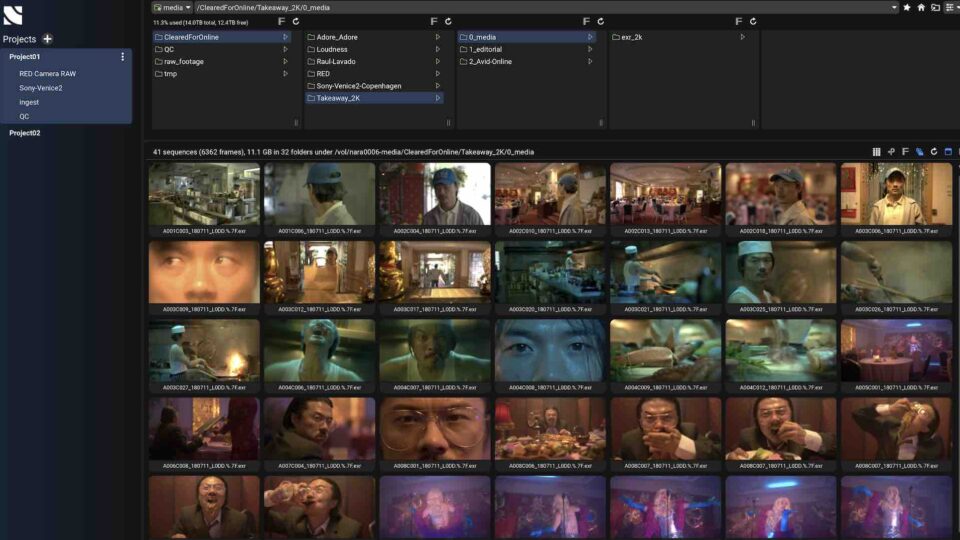The screen industries need to train talent. While the post production sector has its thoroughgoing runners training system, many arrive having invested for three years, or more, in a degree course. And as with other disciplines, when it comes to teaching students about the world of audio post-production, some courses are more equal than others. Addressing the disconnect between college teaching and the needs of industry can pay dividends for new talent and the industry alike.
New talent is needed across the TV and Film industry. ScreenSkills has estimated that an additional 15 to 20,000 crew will be needed by 2025.
Despite the rigorous training needed to succeed in sound post-production, and the more precarious freelance nature of much of the work, audio is one of the most popular choices for those entering the world of post.
While almost all enter the business as runners, many already have media degrees and some hold MAs. But not all qualifications are the same and many in the industry feel that colleges aren’t sufficiently workplace- focused, especially when post houses have their own on-the-job training and are proud to grow their own for the industry.
The ScreenSkills Select initiative, where it promotes educational courses with industry endorsement, has gone some way towards encouraging and supporting colleges to work more closely with industry. But there is still sometimes a disconnect between what students learn at college and what they need in the workplace.
At Envy Post, co-founder Nathascha Cadle is on the ScreenSkills Select advisory board. “It’s very important to work together with not just universities, but with any educational institutions,” she says. “Universities do great work, but there is a massive gap still between education and the real, working world.”

Tonmeister placement year at Sky Production Services
John Cochrane, Senior Manager of Finishing at Sky Production Services has been overseeing a third-year work placement for students on Surrey University’s four-year Tonmeister Music and Sound Recording degree for the last seven years.
TV post production isn’t necessarily on the students’ radar, so Sky gives a talk in their second year to open their minds to this career path. “This is about Sky lending its initiative to a future talent pool for the industry,” says Cochrane. One or two students work at Sky each year. “I was very adamant this was not going to be about cheap labour for menial tasks. They are made a really integral part of the department,” he says. “I wasn’t just looking at a few weeks of shadowing here and there. I wanted something more structured, more meaningful.” The first few weeks are about serious shadowing. And it’s hands on: week one they are on Pro Tools. Within a month or two they’ll be working on podcasts, greeting the client, recording, editing, perhaps mastering and delivering. “We introduce them not just to where the buttons in the menus are, but what the meaning is.” They learn some of the history, to help make sense of the world of audio post. This, together with a grasp of how the technology and the software is built, gives them resilience and adaptability. “We don’t issue cheat sheets, we get them to understand what they’re doing which means they can adapt….Pro Tools is just a tool, it’s their creativity that matters,” says Cochrane.
By the end of the year, they’ll have done editing, mixing under the guidance of an editorial mixer and they usually complete a project on their own. Some get a broadcast credit. Three have been taken on full-time after their degree, including Tom Nursey who now has credits for Rosie Molloy Gives Up Everything and Hitmen. “It’s been a mutually beneficial thing,” adds Cochrane. “The students are 19,20 ish, they often understand swathes of technology, so the training flows both ways.”
One initiative to address this gap is the government’s T-level, two-year screen skills qualification, (an A level equivalent), which launches later this year. “It will be interesting to see if that makes a huge difference,” says Cadle.
The T-level might give runners a head start, but they will generally be given a thorough training anyway. At Clear Cut Pictures, the runners have a six-month introduction where they’re taught a variety of skills so that they are “industry ready,” as Rowan Bray, managing director of Clear Cut Pictures, puts it. Then they are introduced to operations. When they show an interest in a particular area, they will be mentored by the senior team, which can be from day one. Audio is the most popular choice.
Senior industry figures remember their own runner experience as tough but rewarding. “I was going in after the mixers and watching what they had done,” says Nick Fry, the Head of Audio at Picture Shop. “I would remix it myself, or start from scratch. Evenings and weekends, which I think for management was great to see that you’re keen.”

Learning the soft skills
Fry is one who sees new entrants lacking soft skills. “While university graduates might have technical knowledge and understanding of specific aspects of audio, my issue is that they can lack an understanding of the real world, of dealing with clients, of understanding and reading a room, which are skills that you learn over time as a runner,” he says.
Helen Miles, Re-recording Mixer at Molinare, did a four-year degree, followed by a Masters in Sound Design before entering the industry. At the time, she was confident of her qualifications. “I had a piece of paper that told me that I knew what I was doing,” she says. She stands by the value in her Masters, “an element of physics and rigorous audio engineering,” but had hands-on experience of its limitations. “I knew the theory, I knew which buttons to press, but I had no idea how to work as part of a film-making team.”
Richard Addis, Content Services Engineer at Dolby Laboratories, did an acoustics-based Masters. “I went through a period of being quite dispirited and had to get taught from the ground up the creative side, but as I started moving towards operations and technical management, more of an engineering role, I found how applicable the foundational, theoretical stuff was.”
Miles is now working with a runner turned audio assistant. “He doesn’t come with a degree, with experience in Pro Tools, but he sat with me last week and we started learning about how to strip dialogue for an M&E, and that’s straight to the point©This is what you need to get the job done.”
Industry endorsement for ScreenSkills courses
The ScreenSkills Select initiative is designed as a bridge between universities and colleges and the screen industries.
It provides a directory of courses in the UK that are addressing the main priorities for screen employers. Around 120 courses have been approved, after being independently assessed by a ScreenSkills industry team, which has rigorous criteria to check courses for industry-relevance and links to employers. With content and teachers always changing, they also provide annual feedback.
On top of this, ScreenSkills funds a series of employability training events, where industry professionals give information on getting in and on in the business. How to become a runner is at the top of the list.
ScreenSkills Select endorsed colleges get various benefits, including online industry insight sessions, Open Doors events and an Annual Congress, with a raft of industry speakers. A Select partnership manager works with course leaders to help students build personal industry connections. The accreditation can also introduce colleges to local industry working groups if they’re in Manchester, Bristol or Belfast, the West Midlands, Cardiff, Yorkshire and Scotland. Select’s industry advisory group includes Natascha Cadle co-founder of Envy Post.
One of the students who used Select to find the right course is Tom Holmes, who recently graduated from West Herts College with a Level 3 Diploma/Extended Diploma in Creative Media Production: Film and TV, equivalent to three A levels. He is now working as a Foley Assistant at post-production house Molinare. After doing a Media Studies GCSE, he went to the ScreenSkills Select website to find the right next step in education. “The course really focused on being vocational” he says, including work experience as a priority. And it was flexible, allowing him to work with RSA Films, and do two BFI Academy courses specialising in sound.
Sometimes students arrive with wonky practical knowledge. While Pro Tools, or Reaper are standard in the industry, they aren’t necessarily taught in colleges, despite the free versions. Sometimes they’re using Logic, because their background is music. Or the knowledge is superficial. “They often know how to use software but not how that software is put together. Why it works,” says Bray at Clear Cut. “So that manifests itself when something doesn’t work, or when they have to do something that is different or unusual.”
There’s agreement that students are often prepared creatively, or technically, but seldom both. Addis has been consulting with a couple of university courses, suggesting a sensible balance.
Getting such valuable industry input is increasingly the role of dedicated industry outreach staff employed by colleges. They will work with industry professionals to formulate content, recruit guest lecturers and set up work experience. “Industry liaison people are really important; I can’t emphasise that enough” says Cadle. “It comes down to an enormous amount of time, but it’s valuable for both students and industry to connect, to speak with each other.”
Molinare creative director Glen Gathard sees supporting colleges as a way of encouraging the industry to diversify its workforce, rather than relying on informal recruitment. “We’ve supported people like West Herts College in getting their ScreenSkills accreditation, and advising them on what skills the colleges need to give the students to give them the best possible chances when accessing companies like our own, so they can be learning things that are actually relevant.”
It’s a two-way street. “If you really genuinely care, then have a meeting and give them some pointers of what is useful to the industry,” says Gathard. Ashby at Brunel agrees: “It doesn’t have to be unis doing the outreach, companies can come to us.”
James Shannon is head of audio technology at Splice; he’s a Surrey University Tonmeister graduate and also lectures at the University of Gloucestershire. Shannon was pulled back into industry after full-time lecturing last year. “So many people that teach aren’t in the industry and it’s very hard to get that balance. So, how do you keep current as a lecturer?” he asks.
Shannon talks about how students might become interested in audio post from two directions: one, where they study a more general film production course, so they don’t have such a technical background; and two, from sound and music production courses which is more technical. “Most of our students are quite music centric,” he says. Finding an interest in post is more likely to happen at the end of their degree.
Growing your own at Molinare and Envy
At Envy Post, they’ve been bringing through talent, with structured training via The Envy Academy for sixteen years. The Academy has given training to 1500 students, most finding a specialism and moving on in the industry. 50% of the 200 staff are now homegrown. Arriving as a runner – with 50, or 60 job options – they are given time to find the career for them. If they find an interest in sound post, they will need to develop soft skills, alongside technical and craft understanding.
“Ultimately you’re in room with someone for eight or 10 hours,” says co-founder Natascha Cadle. Whatever they’ve studied at college, there’s still a lot to learn and some won’t be cut out for it. “There are so many different disciplines within audio that need to be looked at….People come with a passion and that’s great, but the road to be a dubbing mixer is long and some people might not have the patience.”
At Molinare, they’ve also got a grow-your-own strategy. Creative director Glen Gathard has roots in sound audio; he was previously head of Digital Recording and Mixing at Pinewood Studios Group. Molinare’s sound team all started at entry level, bar one. Both foley artists are eight years into their career, one of them winning an MPSC award for Netflix series The Witcher. They go wide to recruit. “I want a sound team that has the same diversity levels as a standard London Borough,” says Gathard. There are two trainees in the sound department at the moment. First, they need to learn to interact, to communicate. They start with an all-departments year – foley, sound editorial, performance capture, voice record, ADR. All is supported with structured supervision and kpis. The next step for the facility is to turn runners into apprentices, accessing the government levy that Molinare has paid. The facility is bringing in a professional training company to design the correct curriculum across two years.

Sound of music and media
Bray at Clear Cut puts it another way: “The feeling is, too many of the courses are music based first, post-production is either an afterthought or an add-on at the end.” Then there are the more general BAs, “media courses are very much about the editorial, creative,” she says.
At Brunel, they’re developing a joint honours degree for Music and Sound for Film. Niki Ashby, programme lead for Film and TV Studies says: “We want to know what the industry needs are so that we can help to address them.” Ashby and her team regularly talk to industry professionals about skills gaps and what they’re looking for in recruits.
Brunel’s BA in Film Production has sound design as part of its first assessment. By the second year, they’re learning about DAWs, thinking in terms of sound in a script, through to mastering. In their second year, they make four productions, with one role being sound design, when they are expected to do everything from on-set production through to dialogue, foley, sfx, music, and, if necessary, ADR. They can also explore sound design for specific genres.
Although soft skills are an essential part of the Brunel BA, there’s nothing like being in the working world. Summer placements are on offer, with funding for those who find it too much of a financial stretch. By the third year, they have to go into industry, either for a full placement, or work experience.
Sky offers placements for Surrey’s Tonmeister course (see side bar). While Vaudeville Sound has bases in LA and Vancouver which both take students on placement from the University of North Carolina. “They have to work for us for three months and the university constantly checks in,” says Vaudeville Head of Sound Luke Hatfield. “We feedback and they don’t get their pass until that’s done.”

Inspiration from industry
There’s no placement on the National Film and Television School Sound Design for Film and Television MA, but the film studio environment is geared to provide a professional experience, with lots of collaborative work. And its connections with industry make all the difference. Visiting tutors include Oscar-winners sound editor Nina Hartstone and sound designer Nicholas Becker, as well as Oscar nominees- supervising sound editor James Harrison and former sound engineer Graham V Hartstone. The department also works with the editing and composing departments at the school.
Chris Pow heads up the NFTS MA programme where two thirds of students have already spent time in the industry, often as runners. “We try to give our students a very particular experience, one that might take many years in the industry to replicate,” he says. “The aim is to develop a deep understanding of the way sound is used to enhance storytelling, narrative, emotional and character engagement with the film, TV or games projects.”
Louise Burton graduated from the NFTS MA in 2018. So, has it been useful? Having worked on short films and having kept in touch with visiting tutors and other filmmakers, she secured her first job the day she graduated, as Assistant Sound Editor on feature film Bohemian Rhapsody. “It was a fairly steep learning curve,” she says. “But I felt confident in the skills I’d acquired from the NFTS Sound Design course to know that I could bring something of value to the team.”
Burton believes the Masters has underpinned her subsequent work, stepping up to editor last year on a number of films, including Brett Morgen’s Moonage Daydream, Oscar shortlisted for Sound. In fact, she goes so far as to say that “the NFTS really did change my life.”
Last November Televisual hosted a Future of Audio Post Roundtable that was largely reported in Winter’s issue. The discussion that evening also explored the extent to which further education was truly vocational and the degree to which university curricula matched the requirements of audio post employers. Our panel’s observations inform this report. Our thanks again to Avid and Jigsaw24 Media for supporting this event and to Dolby for hosting it.
Staff Reporter
Share this story
















